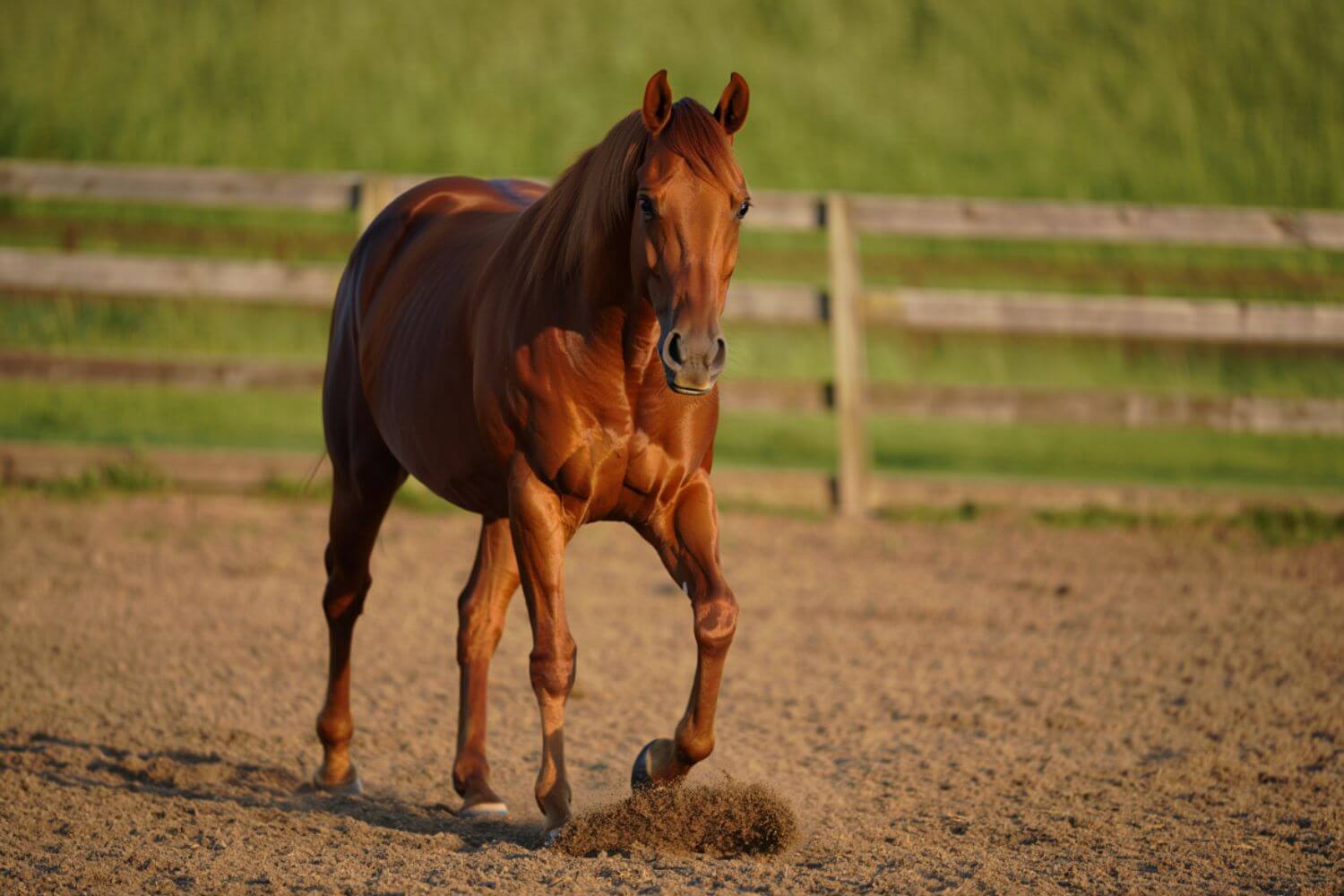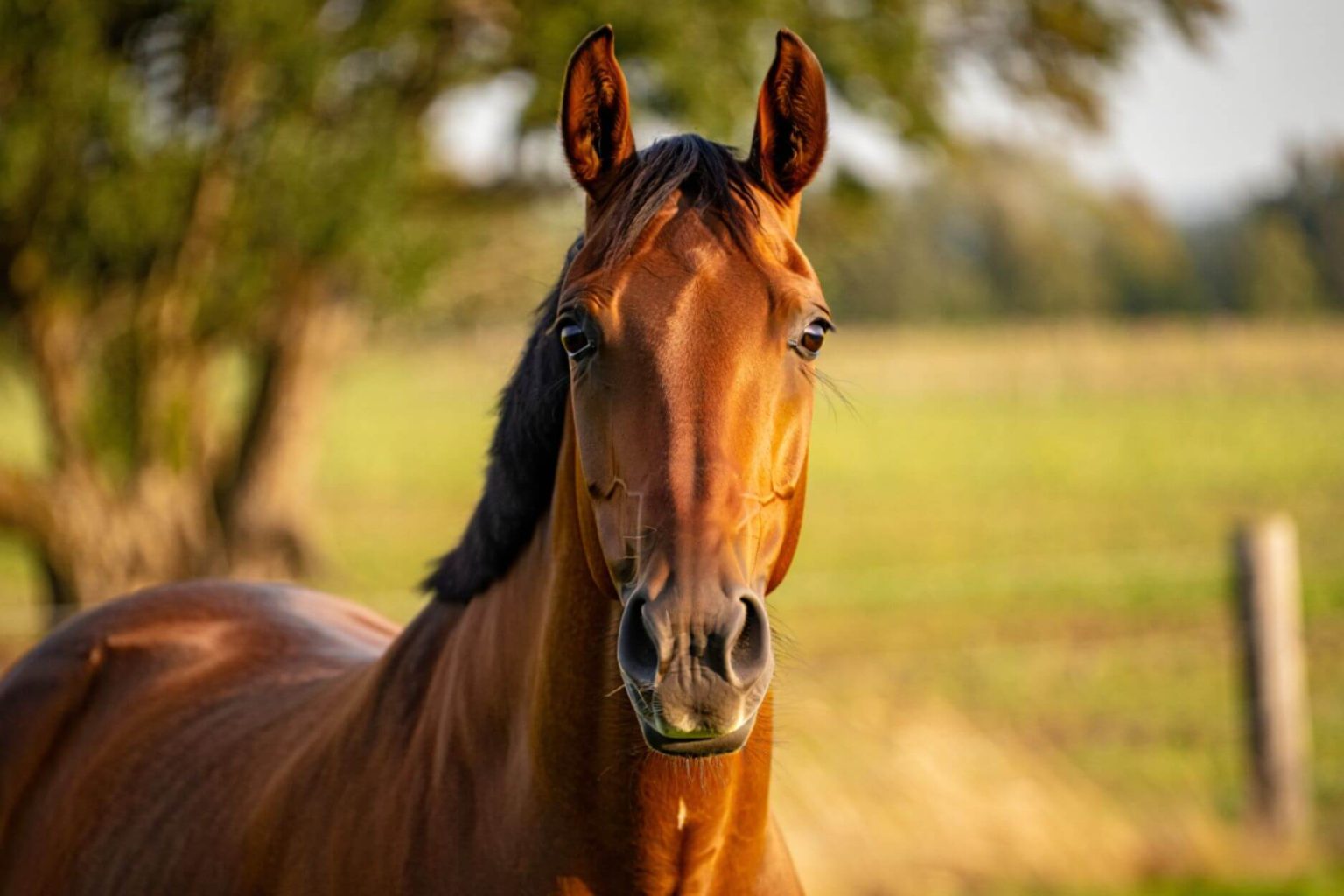
Do Horses Sleep with their Eyes Open?
The question of whether horses sleep with their eyes open has long puzzled equine enthusiasts and casual observers alike. While it may seem like an unsettling sight, this behavior is perfectly natural for these majestic creatures. In this comprehensive guide, we’ll unravel the mystery surrounding this fascinating phenomenon and provide you with an in-depth understanding of equine sleep patterns.
To begin, let’s address the elephant in the room: Yes, horses do indeed sleep with their eyes open. However, this statement requires some clarification. Horses are prey animals, and their survival instincts have evolved to ensure they remain alert and aware of potential threats, even during periods of rest.
Understanding Equine Sleep Cycles
Horses experience two distinct sleep stages: slow-wave sleep (SWS) and rapid eye movement (REM) sleep. During SWS, horses may stand or lie down, often appearing drowsy with their eyes partially or fully open. This state allows them to remain vigilant and respond quickly to any potential danger.
On the other hand, REM sleep is a deeper, more restorative slumber characterized by rapid eye movements, muscle twitches, and occasional vocalizations. During this stage, horses’ eyes are typically closed, and they lie down on their sides in a recumbent position.

The Biological Reasons Behind Sleeping with Open Eyes
There are several biological and evolutionary explanations for why horses sleep with their eyes open:
- Prey Instinct: As mentioned earlier, horses are prey animals, and their survival instincts have evolved to keep them alert and aware of potential threats, even during periods of rest.
- Lateral Vision: Horses have a wide field of vision, thanks to their laterally placed eyes. This allows them to scan their surroundings for potential dangers while dozing.
- Herd Mentality: In the wild, horses rely on the collective vigilance of the herd. While some members rest, others remain on the lookout for predators or other threats.
- Anatomical Adaptations: Horses have a unique anatomical feature called the “semilunar fold,” a thick, opaque membrane that covers the eye’s cornea when the eyelid is open. This adaptation helps protect their eyes from debris while allowing them to maintain some visual awareness.
Debunking the Myth: Do All Horses Sleep With Open Eyes?
While it’s true that horses often sleep with their eyes open, this behavior is not universal. Some horses may sleep with their eyes completely closed, particularly during deep REM sleep or when they feel exceptionally safe and secure in their environment.
Additionally, factors such as age, health, and individual temperament can influence a horse’s sleeping habits. Younger horses and those with heightened anxiety or stress levels may be more inclined to keep their eyes open during rest periods.
The Importance of Equine Sleep for Health and Well-being
Adequate sleep is crucial for a horse’s overall health and well-being. During sleep, horses experience physical and mental rejuvenation, muscle repair, and memory consolidation. Disruptions to their sleep patterns can lead to fatigue, irritability, and even compromised immune function.
To ensure your horse gets the rest it needs, it’s essential to provide a safe, quiet, and comfortable environment. Proper nutrition, regular exercise, and stress management techniques can also contribute to better sleep quality.

Calculating the Average Sleep Requirements for Horses
While sleep requirements can vary among individual horses, most experts recommend the following guidelines for adult horses:
- Total Sleep Time: Approximately 4-5 hours per 24-hour period
- Slow-Wave Sleep (SWS): 2-3 hours, typically standing or lying down with eyes open
- Rapid Eye Movement (REM) Sleep: 1-2 hours, lying down with eyes closed
It’s important to note that these are general estimates, and factors such as age, breed, and activity level can influence a horse’s sleep needs.
Embracing the Equine Sleep Cycle: A Natural Wonder
While the sight of a horse sleeping with its eyes open may seem unsettling at first, it’s a fascinating adaptation that showcases the remarkable resilience and survival instincts of these magnificent creatures.
By understanding the biological and evolutionary reasons behind this behavior, we can appreciate the intricate sleep patterns of horses and ensure they receive the rest they need to thrive.
Whether you’re a seasoned equestrian or simply captivated by these majestic animals, embracing the equine sleep cycle is a testament to the wonders of nature and the remarkable adaptations that have allowed horses to survive and flourish for centuries.

5 Frequently Asked Questions About Horses Sleeping With Their Eyes Open
1. Is it normal for horses to sleep standing up?
Yes, it is perfectly normal for horses to sleep while standing up. This behavior is known as “horse napping” or “standing sleep,” and it’s a part of their natural sleep cycle. Horses often experience slow-wave sleep (SWS) while standing, allowing them to remain vigilant and respond quickly to potential threats.
2. Can horses see while sleeping with their eyes open?
While horses sleep with their eyes open, their vision is somewhat impaired during this state. The presence of the “semilunar fold,” a thick, opaque membrane that covers the eye’s cornea, prevents them from seeing clearly. However, they can still detect movement and potential threats in their peripheral vision.
3. Do all horse breeds sleep with their eyes open?
No, not all horse breeds sleep with their eyes open. While this behavior is common among many breeds, some horses may sleep with their eyes completely closed, particularly during deep REM sleep or when they feel exceptionally safe and secure in their environment.
4. Is it safe for horses to sleep lying down?
Yes, it is perfectly safe for horses to sleep lying down, especially during REM sleep. However, they should have access to a soft, clean, and comfortable surface to prevent injuries or discomfort. It’s also essential to ensure their sleeping area is free from potential hazards or disturbances.
Ready to transform your space with stunning equestrian charm? Explore our curated collections of horse decoration, featuring breathtaking horse wall art, elegant horse paintings, and vibrant horse wall murals. Add functionality with unique horse clocks or wake up in style with our horse alarm clocks. Bring your passion for horses into every corner of your home with Dream Horse!
5. How can I ensure my horse gets enough sleep?
To ensure your horse gets enough sleep, it’s important to provide a safe, quiet, and comfortable environment. Proper nutrition, regular exercise, and stress management techniques can also contribute to better sleep quality. Additionally, consult with your veterinarian or equine specialist if you suspect your horse is experiencing sleep disturbances or other health issues related to its sleep patterns.







